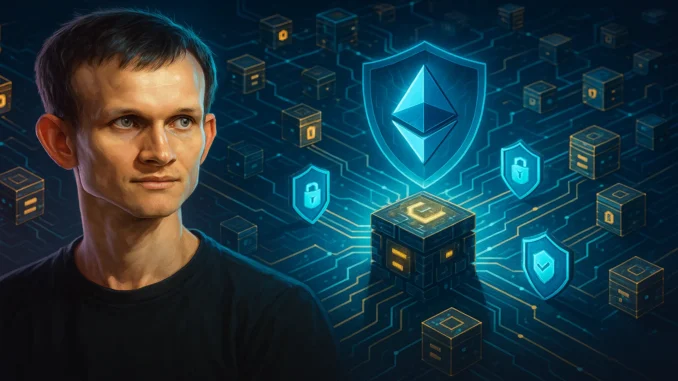
Vitalik Buterin Issues Reminder on Blockchain Security
Ethereum co-founder Vitalik Buterin shared a timely reminder about the fundamental principles of blockchain security, emphasizing the limits of decentralization when validators take on tasks beyond consensus validation.
According to Buterin, one of blockchain’s strongest assurances is that even a 51% attack cannot make an invalid block valid. This means that, under normal circumstances, a colluding majority of validators cannot steal assets or alter legitimate transactions.
The Hidden Risk of Overtrusting Validators
However, Buterin warned that this security guarantee does not extend to systems where validators are trusted to perform actions outside the blockchain’s consensus layer. In such cases, validators could collude or malfunction, providing incorrect outcomes or false confirmations without the blockchain having any built-in way to correct them.
This issue becomes particularly relevant for oracle networks, cross-chain bridges, and governance protocols—areas where validators play roles that extend beyond validating transactions.
Implications for DeFi and Cross-Chain Systems
Buterin’s message highlights ongoing security debates within decentralized finance (DeFi) and cross-chain technology. As projects integrate off-chain data or multi-chain coordination, they increasingly rely on validator trust. This opens up potential vulnerabilities, even in otherwise robust systems.
For instance, if a group of validators agrees on incorrect off-chain information, the blockchain cannot dispute or reverse that action—leaving users exposed.
A Call for Careful Design and Decentralization
Buterin’s warning serves as a reminder that trust minimization remains essential in blockchain architecture. Systems relying on validators for external logic or data must implement additional safeguards, such as cryptographic proofs, redundancy, or distributed oracle mechanisms, to ensure security and reliability.
As the crypto ecosystem evolves toward greater interoperability, the message is clear: decentralization alone does not guarantee security. The integrity of blockchain systems depends on keeping validator responsibilities strictly within the boundaries of what the chain itself can verify.


